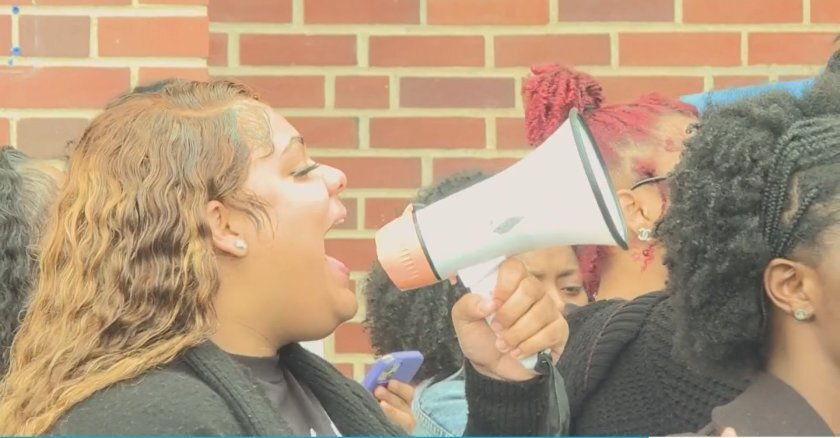The president and his allies claim they are correcting a system overrun with antisemitism, radical liberalism and “woke” ideology. Universities, they argue, have become breeding grounds for anti-American sentiment and bastions of diversity, equity and inclusion (DEI) policies run amok. But this caricature is deeply misleading. In fact, most universities remain conservative in their structure and culture — rooted in Euro-centric worldviews; often hostile to women in leadership; and inhospitable to minority students, faculty and staff.
I’ve worked in higher education for over 25 years at institutions ranging from community colleges to research universities like Georgia Tech and the University of Cincinnati. I also mentor a cohort of mostly minority administrators who aspire to become college presidents. From that vantage point, I can say with confidence that the real problems in higher ed have little to do with political correctness or DEI and everything to do with systemic inequities that state officials and the Trump administration refuse to address.
Take student and faculty diversity at flagship public universities. In Georgia, for instance, 87.1 percent of white students and 83.7 percent of Black students graduate from high school on time. Yet African American students make up only 7.4 percent of the student population at the University of Georgia. Alabama fares slightly better, with Black students comprising 11.6 percent of enrollment at its flagship public university. In South Carolina, Blacks represent 25 percent of the state’s population, but only 10.1 percent of students at the University of South Carolina.
Much of the problem lies in universities’ overreliance on culturally biased standardized tests and states’ consistent failure over decades to invest in underperforming public K–12 schools in low-income areas. Despite these disparities, current federal education reform efforts, including hostility toward DEI initiatives and cuts to Title I funding, threaten to make matters worse, not better.
Equally harmful is the myth that universities are liberal strongholds where DEI policies are being forced on unwilling students and faculty. In reality, elite universities are often reluctant to hire Black professors, award them tenure or promote research in Black and ethnic studies. There remain deep biases against the disciplines in which scholars of color frequently work, and many senior faculty — predominantly white men — operate from narrow definitions of scholarship that exclude nontraditional methodologies and topics.
The fight for equity in hiring and tenure is not a recent one. It has been waged for decades and it continues today.
Perhaps the most cynical rationale for federal intervention is the claim that elite universities are hotbeds of antisemitism. While any act of antisemitism must be condemned, it is dishonest to suggest that institutions like Columbia University, the University of Wisconsin and the University of North Carolina actively promote or tolerate such behavior. Most universities already have strong antidiscrimination policies and struggle to balance the protection of all students with the right to protest and academic freedom. Ironically, framing these and other campuses as enemies of Jewish students could backfire, fueling resentment and new forms of antisemitism by painting Jewish students as suppressors of free speech.
What makes this moment especially frustrating is the selective moral outrage. For decades, Black students have endured slurs, harassment and symbols of hate, including blackface incidents and Confederate flags flying on campuses. They’ve seen their history minimized or erased from textbooks and lectures. And yet when these students raise concerns, there’s silence or outright resistance from the same political forces now claiming to defend civil rights on campus.
Adding insult to injury, many of our nation’s most prestigious public universities, particularly those in the South, were built in part with enslaved labor. Even when slave labor wasn’t used directly, many institutions profited through founders, trustees or faculty who enslaved people. Yet efforts to address these legacies have often been slow or performative, or have met with outright resistance. And I haven’t heard many public officials on any level, Democrats or Republicans, demanding that the aftermath of those acts be addressed or that historically Black public colleges be paid the $12.6 billion the states owe from deliberately underfunding some of them for decades.
So as we debate what’s wrong with American higher education, we must be honest about whose problems we’re trying to solve. The Trump administration’s “reforms” are not reforms at all; they are attempts to sanitize higher education, turning the academy into an instrument of propaganda for the president and his Make America Great Again proponents. Meanwhile, longstanding calls for genuine reform — from expanding access and equity to confronting institutional racism — continue to be ignored.
The American people must decide what kind of higher education system they want and what they are willing to stand up for and defend. Meaningful reform demands more than bullying, making reckless accusations or withholding funding from life-saving research projects. It requires a clear-eyed understanding of history and a moral commitment to repair the damage inflicted by the architects and gatekeepers of higher education, both past and present.
Governing’s opinion columns reflect the views of their authors and not necessarily those of Governing’s editors or management.
Related Articles














